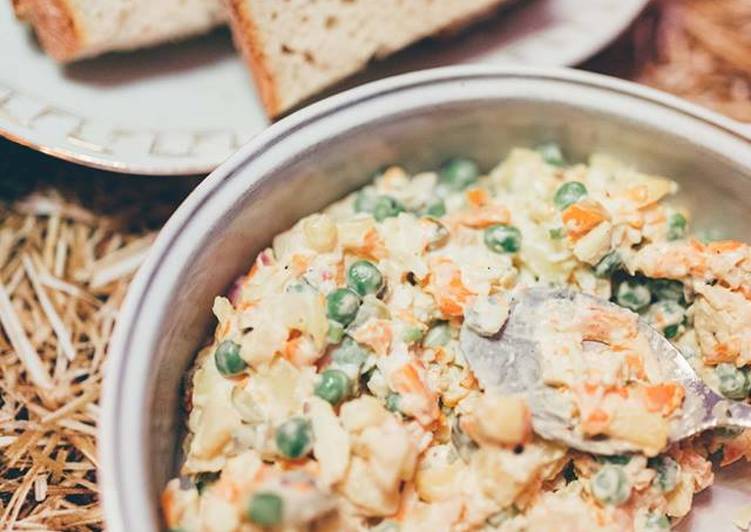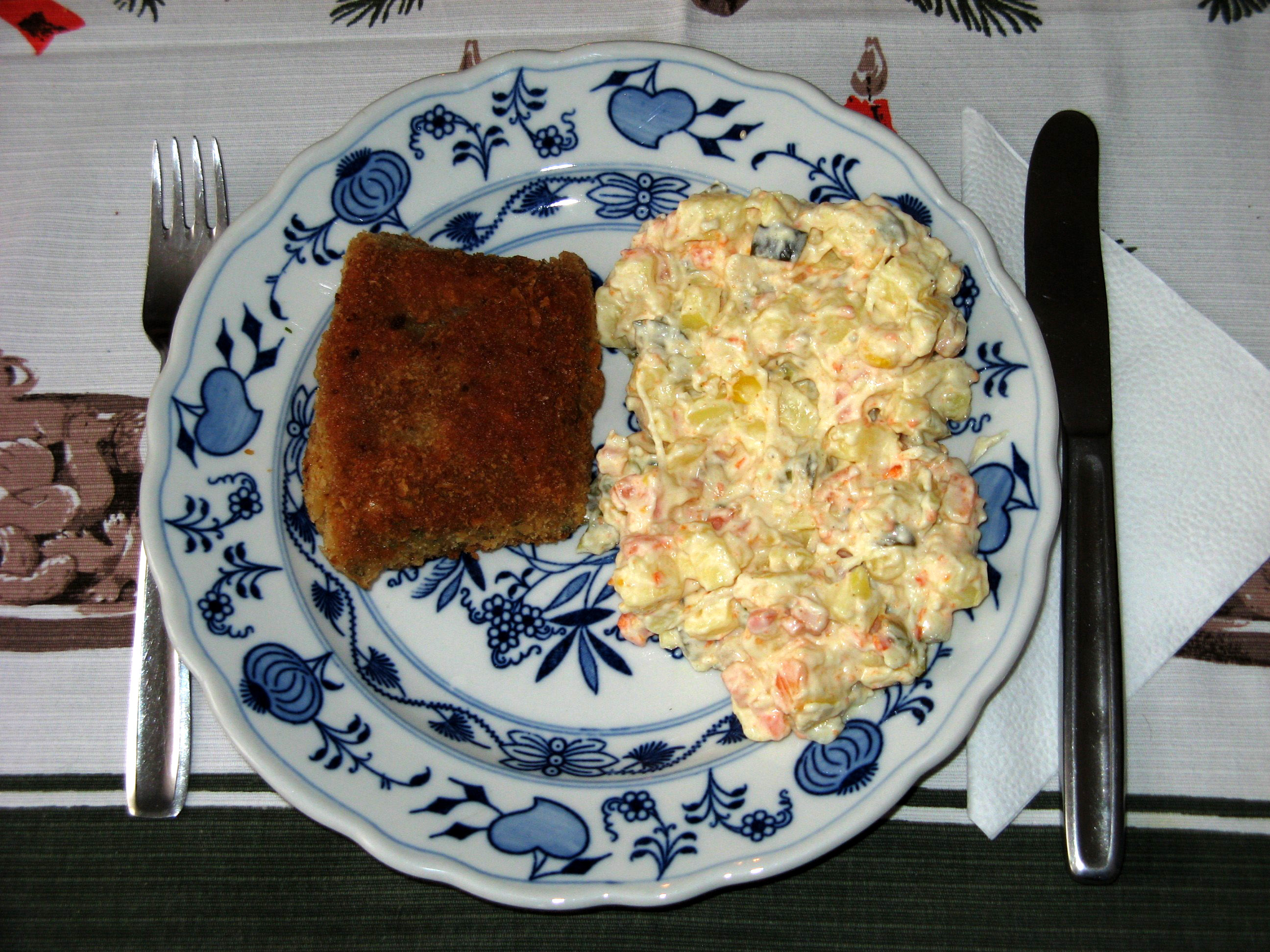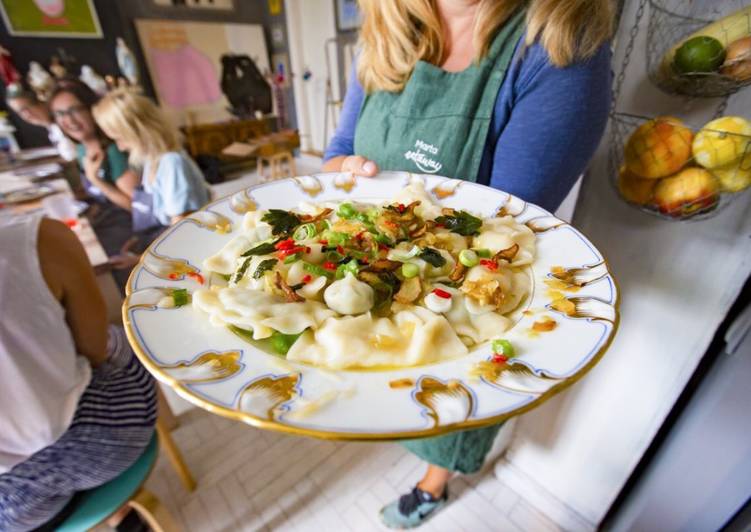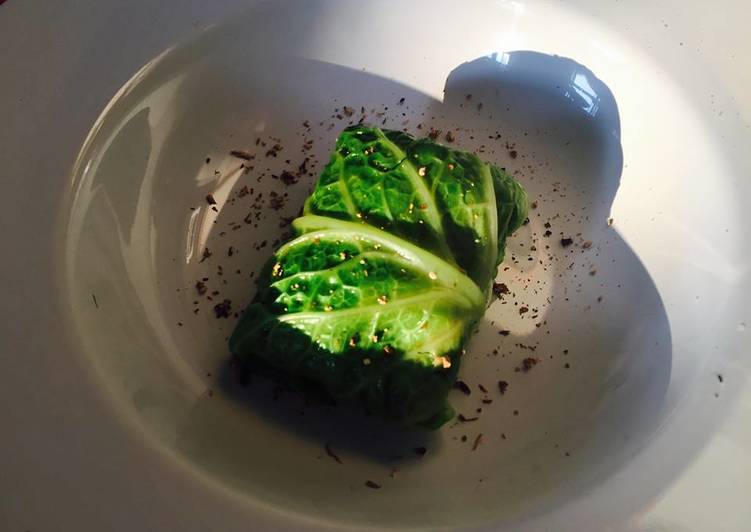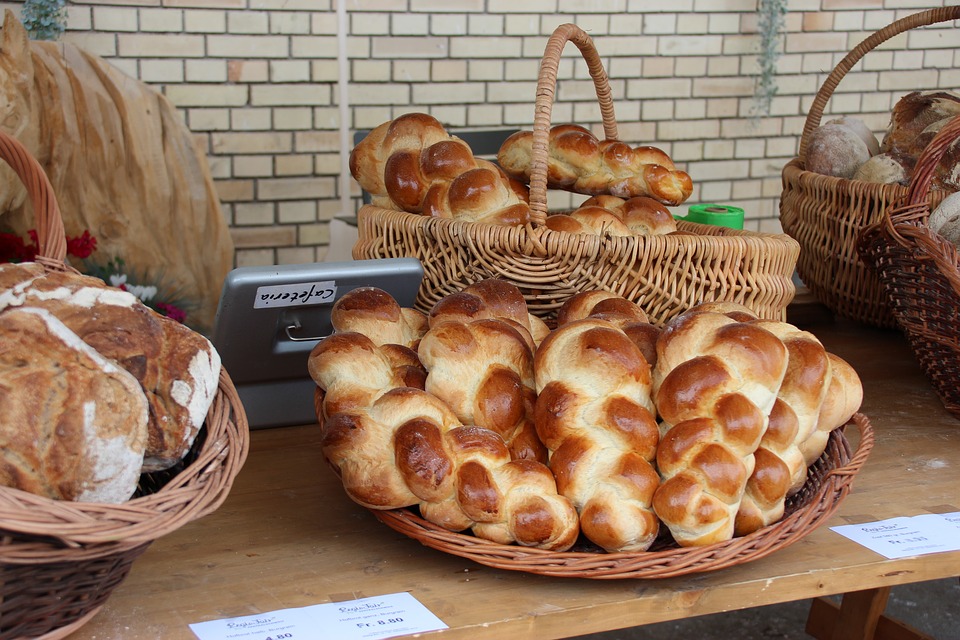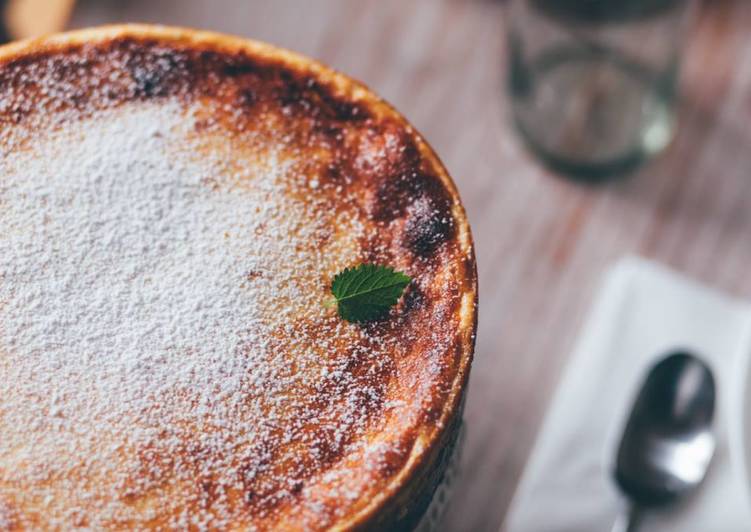The 12 Traditional Christmas Eve Dishes of Poland
Although in many cultures, the night before Christmas is a time of anticipation and preparation for tomorrow, in Poland it's the main event! Christmas Eve, or 'Wigilia' is the day of the main feast; a time for all the family to come together and eat, drink, sing, exchange gifts & wishes and be merry. This wonderful celebration is predominately Catholic and as such taken quite seriously, but this solemnity certainly doesn't stop it being a magical and joyful evening. You can learn more about the Wigilia traditions here
- 1. Pierniki (Polish Gingerbread)
- 2. Barszcz Czerwone z Uszkami (Red borscht with mushroom dumplings)
- 3. Kapusta z Groszek (Cabbage with Split Peas)
- 4. Jarzynowa Sałatka (Vegetable Salad)
- 5. Karp (Carp: Fried or Baked in Aspic)
- 6. Pierogi z grzybami i kapustą (Mushroom and Cabbage Pierogi)
- 7. Gołąbki (Rice Stuffed Cabbage Rolls)
- 8. Challah (Plaited Jewish bread)
- 9. Sernik (Polish Cheesecake)
- 10. Kutia (Wheat-flower and Honey Dessert)
- 11. Makowiec (Poppy Seed Cake)
- 12. Kompot (Smoked Fruit Cordial)
The centrepiece of it all is the Wigilia meal. Looking through this list at these 12 delicious dishes, you might be surprised to discover how healthy most of them are... and that many are vegetarian or vegan! For such a sausage loving country it's definitely what you'd expect. Although the amount of cabbage involved is exactly what you would expect (we could re-name it Cabbagemas Eve). Due to the strong religious symbolism of this meal, as during lent - red meat is not consumed. But we don't miss it one bit and neither will you once you dig into the weird and wonderful world of Christmas Eve in Poland.
The 12 traditional dishes of Polish Christmas Eve aren't exactly a hard and fast set. In compiling this article, we discussed the matter greatly with our friends, family and colleagues (and google) and it seems that every region, every city, every family, every person has a different idea as to what foods should be on this list. In reality, there are more like 30 traditional dishes which people pick and choose between. The ones we have chosen might be more localized to Krakow or even to the people around us, but it's definitely as honestly reflective a list as any you'll find.
If you are in the city in December, you might also think about booking a Christmas meal with Marta at her home in Krakow... and trying these dishes yourself!
Smacznego!
1. Pierniki (Polish Gingerbread)
Polish Gingerbread, or, 'Pierniki' is one of the serious highlights of the Polish Christmas season and as these treats are also snacked on in the lead up to Wigilia Night, they are kicking off our list of delicious dishes for an amazing Christmas Eve in Poland.
It's such an established tradition that the baking of these spicy treats can be traced right back to the 13th century! The dough is laced with a special blend of aromatic spices (“przyprawy” means spices in Polish and the cookies’ name, ‘Pierniki’, derives from this word!) such as ginger, anis, cinammon & nutmeg. In order to make the most delicious Pierniki of all, you have to start early. Polish Gingerbread is made at least a month before Christmas and then left to ferment, to become the softest, sweetest, chewiest and most addictive bikkies imaginable! Particularly yummy when paired with a glass of mulled wine.
Having tasted Krakow Kitchen Queen Marta Bradshaw’s pierniki - we can confirm that she is the right person to learn from. Here’s her recipe on recipe sharing website Cookpad: https://bit.ly/2EfFCHY
2. Barszcz Czerwone z Uszkami (Red borscht with mushroom dumplings)
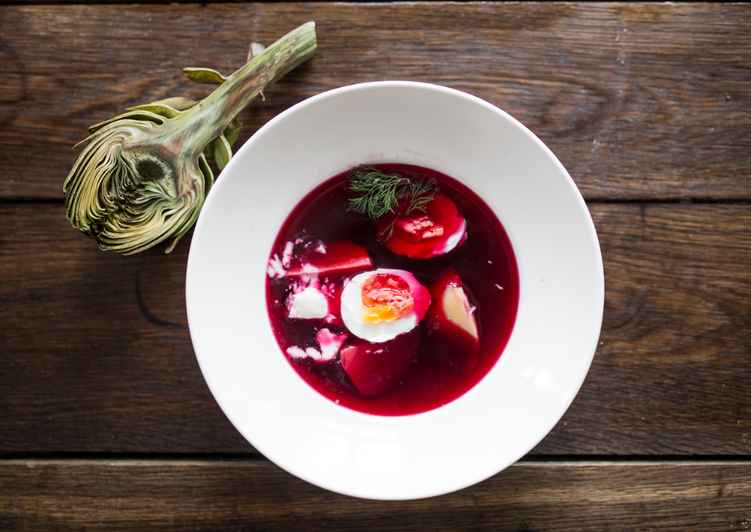
This brightly coloured soup is a Slavic phenomenon. It's gone on quite the cross-continental journey over the last few thousand years and undergone many transformations. It began as an ancient hogweed soup which some even say travelled here with the Jews or the Mennonites. Today, this beetroot-based soup it's still known in many countries, by many different names and plays up to a whole spectrum of flavours.
For Christmas Eve in Poland, the pretty soup is made with loads of well-scrubbed beets, vegetable stock (can also be beef or fish the rest of the year), onion, herbs & vinegar. It's made extra gorgeous by some adorable friends. Into the soup go one of our favourite things: tiny little mushroom dumplings, like mini pierogi, called 'uzkami'.
3. Kapusta z Groszek (Cabbage with Split Peas)
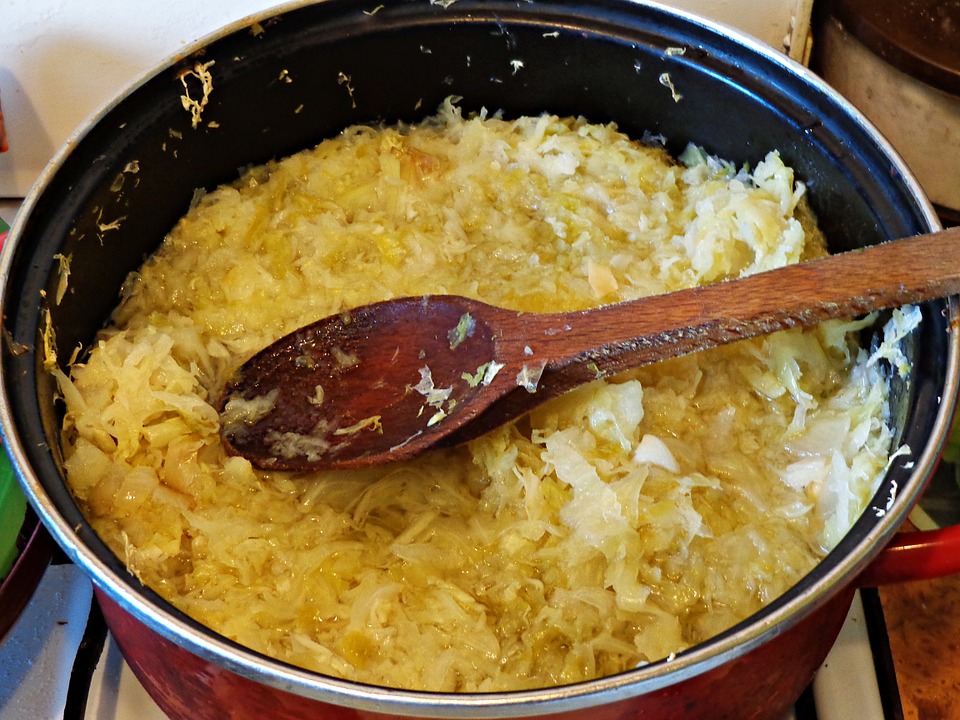
Eating a lot of cabbage is a stereotype that Poland gets painted with a lot. And that’s because it’s completely true. Polish people love cabbage and it plays a role in quite a few of these 12 traditional dishes belonging to Christmas Eve in Poland. There are several different versions of a cabbage dish that you could put in here without raising a fuss but we’ve stuck with a classic - cabbage, simply fried, mixed together with split peas.
4. Jarzynowa Sałatka (Vegetable Salad)
This so-called salad is an addictive holiday staple and a really good way to get kids (and adults) to eat their veggies. Even outside of the holidays, it’s often spooned into jars and brought home in large quantities when returning from visits to mums, grannies and aunts in their home villages. Carrots, pickles, eggs, parsley root, apples and onion are chopped up into tiny little cubes mixed with peas (healthy so far…) and then drowned in a creamy white sauce made of mayonnaise, yoghurt and mustard. Which is delicious and perfect for feasting on Christmas Eve in Poland.
Here’s Marta’s recipe: https://bit.ly/2Ui6Ouk
5. Karp (Carp: Fried or Baked in Aspic)
This one is a national divider. Although most Polish kids will have at least one magical/traumatic memory of a carp living in their bath for the week leading up to Christmas, and it is still served at most Christmas Eve tables, it doesn’t mean it all gets eaten. Some people love it, some people hate it, most people serve it anyway to keep up the tradition and for that one uncle visiting from Warsaw who just loves the stuff.
Either way, it sure is an... uh... interesting cultural phenomenon to see carp-filled tanks popping up in grocery stores, Christmas markets, and bathrooms. It's a historical part of Christmas Eve in Poland, but that's definitely beginning to change. A growing number of people have begun to substitute salmon, haddock or do away with the dish altogether due to the national rise of interest in animal rights.
To prepare this dish, the fish is usually soaked in milk to remove the river flavour, then battered/flour coated and fried. You can also serve it Jewish style; baked in aspic (a gelatinous… jelly).
6. Pierogi z grzybami i kapustą (Mushroom and Cabbage Pierogi)
Pierogi. You couldn’t have a celebration in Poland without these crowd pleaser dumplings on the table. The people would revolt. Funghi and cabbage are the perfect ingredients as Autumn has just finished and the Poles need to find a way to use the jars full of forest mushrooms they joyfully collected in the months before, and as previously mentioned… they just love cabbage. After the pastry filling is stuffed with a mix of diced and fried cabbage and mushrooms, the dumplings are boiled in hot water. Ruskie (Potato & Cheese) Pierogi are also an acceptable substitute for Christmas Eve in Poland.
Want to learn more about Christmas in Poland? Here are some things we wrote that you might enjoy!
- Christmas Eve Meal in Poland
- Christmas Traditions in Poland
- Polish Christmas Traditions: Krakow
- Krakow Christmas Market
7. Gołąbki (Rice Stuffed Cabbage Rolls)
It’s like a giant Polish dolmade that’s weirdly been named after pigeons due to being roughly the same shape (we can name a few other things they’re the same shape as…). Although these stuffed cabbage rolls are served all year round, for Christmas Eve in Poland they go vegan. Leaving out the usual meat filling, boiled cabbage leaves are delicately wrapped around a mix of rice, onions & spices, layered with tomato sauce and then baked. Yes, these too are made of cabbage but also delicious.
8. Challah (Plaited Jewish bread)
You might be surprised to see a typically Jewish dish at this very Christian holiday, but this just goes to show that Jewish culture & history is deeply, respectfully (and deliciously) intertwined with that of Poland. With it’s shiny, plaited lumps, it looks like the muscular arm of a bodybuilder. But it tastes much better than a bodybuilders arm would probably taste. It’s chewy, sweet, soft and it’s a part of everyday life in Poland - it deserves it’s place both on the table and as a part of the 12 dishes of Christmas Eve in Poland
9. Sernik (Polish Cheesecake)
Although most people would associate cheesecake with America, you’ll probably be surprised to know that the famous New York Cheesecake actually started right here in Krakow! Poland has quite the passionate historical romance with this creamy dessert and there are probably some who doubt the claim (like people from N.Y), but as an official authority on world facts (aka. internet website), we are definitively telling you that it’s totally the truth. As the story goes, a Jewish family invented the white cheese (ser biały) filled delicacy before migrating to New York where it gained it’s fame by tantalizing the tastebuds of the locals.
The concept is still the same - it’s a cake made of cheese, but the preparation, ingredients and final product are pretty different from the typical style you can buy around the world. Polish ‘Sernik’ (ser = cheese) is made from a local cheese named Twarog rather than mascarpone (although modern Pole’s will often use a mix of the two). The consistency is a bit more dense, although still creamy and delish. This is one of the most beloved cakes in the country and no Christmas Eve in Poland is complete without a slice.
10. Kutia (Wheat-flower and Honey Dessert)
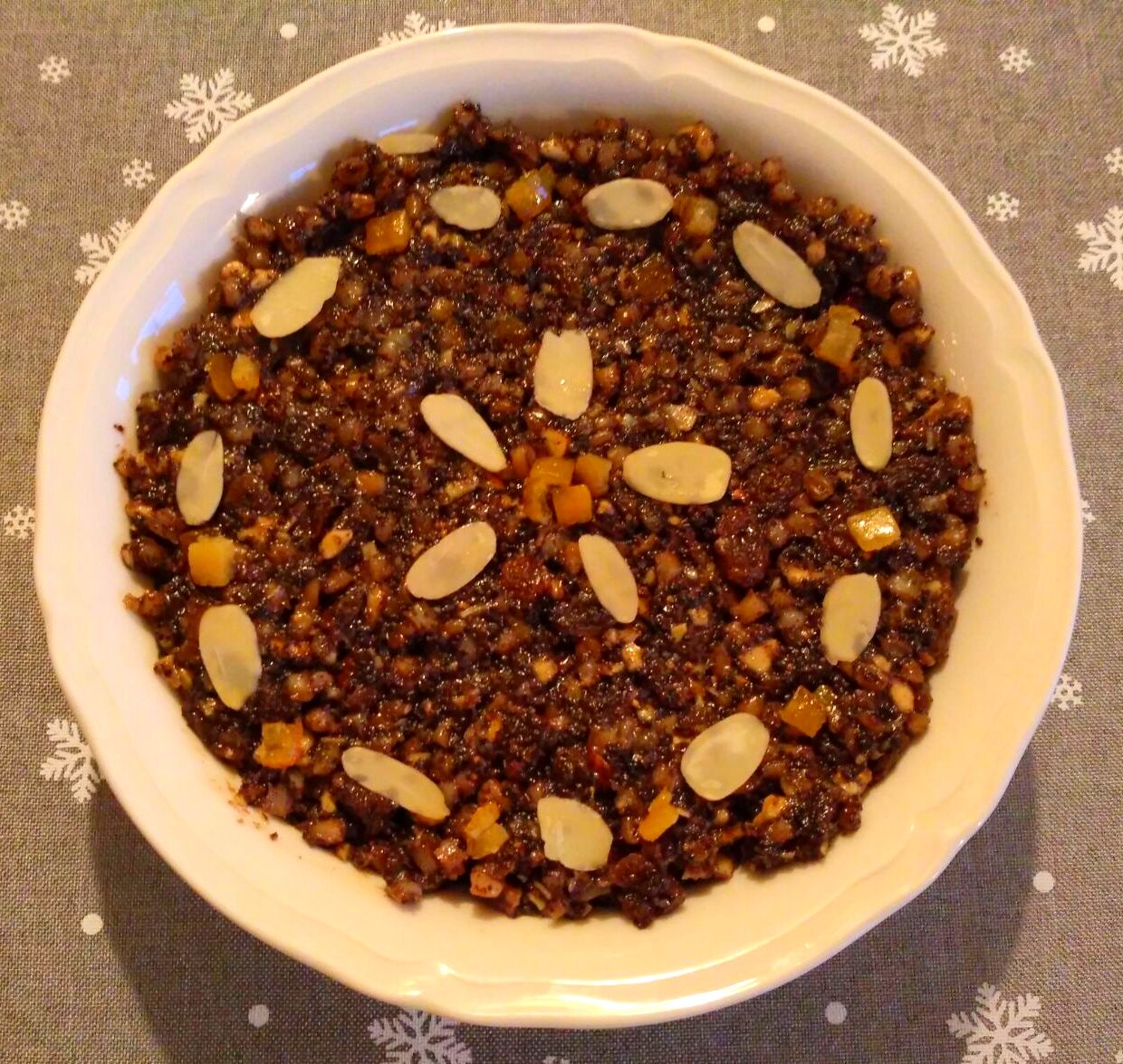
This traditional Slavic dish is hard to define. We tried to find a word to suit it - pudding, cake, mousse… but it’s none of these, really. It’s just kutia and it’s a true staple of every Christmas Eve in Poland. A base of bruised wheat and poppy seeds is soaked overnight before a boiling in the morning - mix in malt, honey, nuts and dried fruits and munch for days.
11. Makowiec (Poppy Seed Cake)
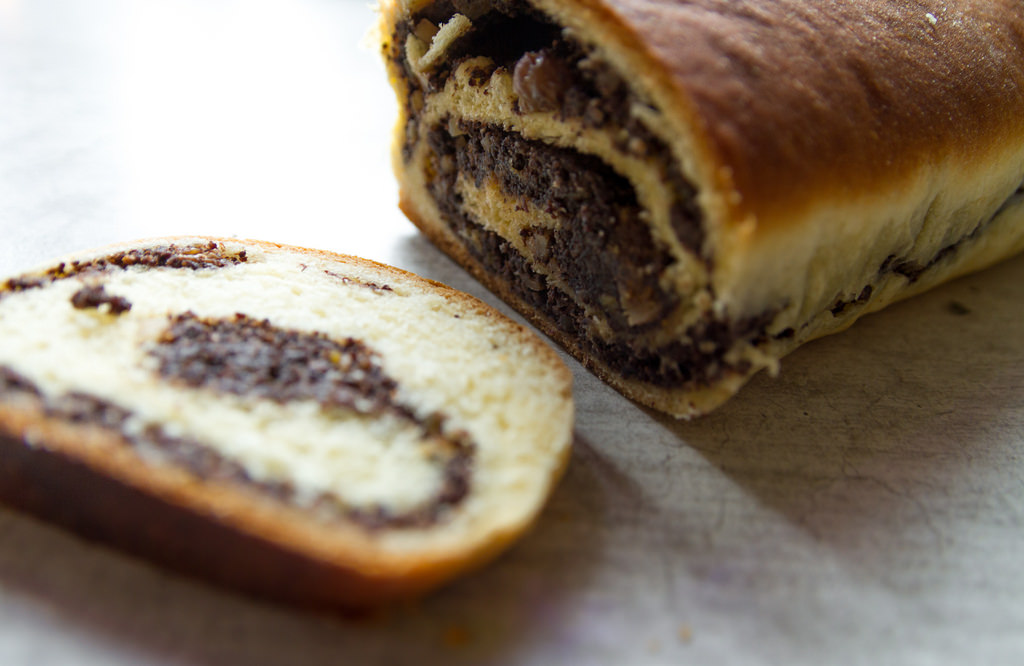
At your first Christmas Eve in Poland, biting into a piece of Makowiec can be a confusing experience. In essence, it’s a rolly polly sponge roll which appears to have a swirl of chocolate going through it. Upon consuming, you soon realise it is not chocolate and your mouth tries to understand. Polish people may have a serious obsession with cake - but they make it a very healthy one. Instead of chocolate, but equally as delicious once you get used to it, a mix of ground poppy seeds, raisins & honey creates the hypnotic pattern of the Makowiec.
12. Kompot (Smoked Fruit Cordial)
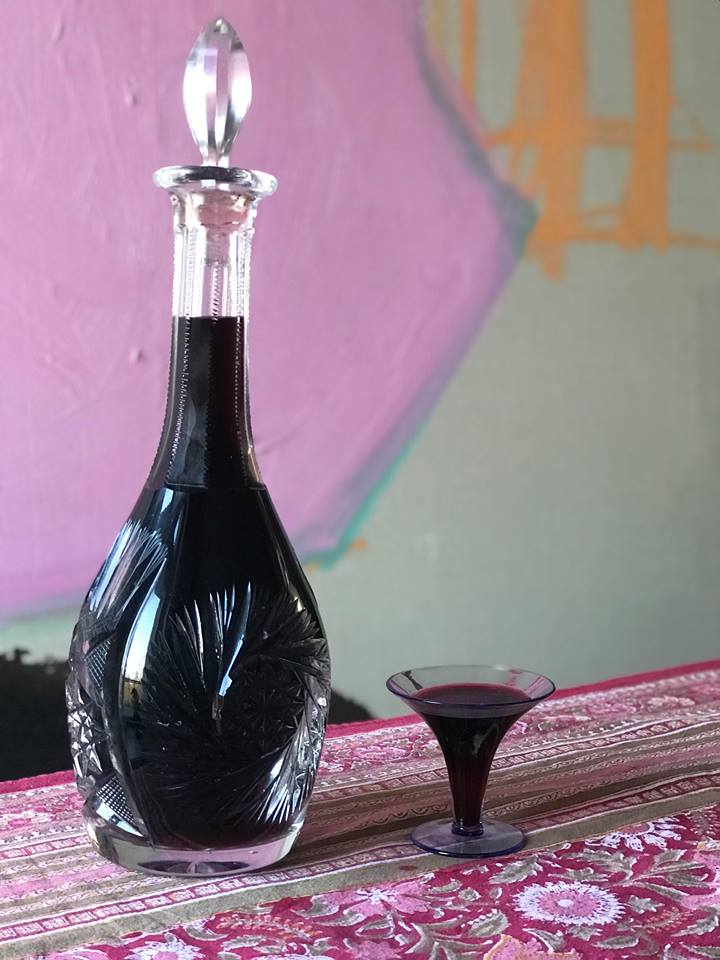
This has to be one of the most iconic drinks of the Polish nation. You’ll find in big cities and in villages, in restaurants and in milk bars, in homes and in schools, right across the country. Although kompot can be prepared with the fruit of your choice (usually plums, cherries, rhubarb etc) frozen, fresh or smoked, for Christmas Eve in Poland the traditional way is to make it just with smoked plums. The special Wigilia fruit is stewed on the stovetop with additional spices or sugars if necessary, before being strained.
Comments
best Christmas food in the world!
ReplyHi, there! I want to start this beautiful Christmas Eve tradition but cannot find the symbolism of the 12 dishes except that the 12 represent the 12 apostles. Can anyone help? Many thanks! Maria
ReplyAhh.... Leek and cheese salad - the best !
ReplyLove it all I am Polish ukranian and love all the dishes.
ReplyBless your soul, I hope your family and friends are well.
ReplyStuffed cabbage with buckweat was something my Mom alway made at Christmas. She would cook them then drain them and then bake them. Can you tell me how to cook the buckweat
ReplyThanks for the website it is truly an insightful website, thanks for sharing it.
ReplyGreat summary! There is a little mistake in the name of one dish: Kapusta z Groszek --> Kapusta z Groszkiem :) Best, Kamil
Replyalbo kapusta z grochem?
Replyit is good
ReplyI like it and it is so delicous
ReplyThe smoked plum compote is interesting, and not like the compotes you normally get (sweet fruit ones) in Poland on a regular day. I'm sure it is really good for digestion, but the taste itself is not for everyone, as it is not sweet (has a strong smokey taste) and can be slightly bitter even.
ReplyThe carp is terrible... doesn't matter how you cook it, it just tastes of mud and is full of huge bones! All the other courses are great! We have a traditional Polish meal each year and just replace the carp with salmon :)
ReplyYou can try out these 12 dishes if you are in Krakow - Marta from Eataway hosts a Christmas meal a couple of times in December...
ReplyI'm Polish and you didnt mention the garlic or salted bread
Replysalted BREAD is not good IM G. O. D. so salt BREAD is B A D ok :)
ReplyIm polish too and we dont do salted bread.
Replyi'm Polish by Birth and we had salted bread
ReplyI love polish food yum yum at this point I think polish food is a fetish of mine
Replythis was so emotional
ReplyYes very good, I enjoyed reading this article
Reply#barszcz2022
ReplyI found the article most enlightening. I'm not an expert being an American of Polish extraction and having visited Poland only a couple of times. I loved the food when I was there. Is there any way of getting a translation of the ginger cookie recipe?
ReplyWe celebrate Wigilia every Christmas Eve at sunset and as long as I can remember we have been w a lot of these wonderful traditional foods. Some of the ones mentioned are new to me so I may try a new dish this year. Thanks for the thorough list
ReplyI am not Polish but my partner is. This is the first time we will be spending Wigilia without any of his family and I am trying to figure out how to put together a feast for 2. Most of these dishes are exactly what they would serve so I appreciate it as a road map. Any other tips on scaling down for this year would be appreciated.
ReplyVery good information and very helpful if researching Christmas in Poland like me. For school, work, or just for fun!
Replythis is jam-packed with information and was lovely presented
ReplyOh yes all of these dishes are very familiar what a lovely summary of Wigilia cuisine Super. !!
ReplyI am an American Pole. We have Wigilia every year, and without showing my age, have done so for many, many years. I believe the dishes served depend on the region your ancestors are from. Many of the dishes listed here, we don't eat. Yes, it is a meatless meal, which begins by passing Oplatek. We have fried fish, pierogi, pagach, sledzie, mushroom soup, a vegetable salad, Our version adds shrimp cocktail, and we always end with dessert which is cookies, nuts, and poppy seed and nut rolls. We don't have hallah bread nor golabki. I have never heard of that. Not saying it's wrong, just not the way we've done it.
ReplyIf anything, instead of challah, we would have babka which is a similar Polish bread.
ReplyThis was horribly written-especially insulting about naming golumbki. I feel a much more experienced writer should have done this article. It was making a joke of most if the foods!!!!
ReplyThis is not accurate at all and a disgarce to the polish community.
ReplyI Was Surprised At challa and at kutia, But I figured out what they are called in My region. They Are called "Chałka" and "Moczka" Bit Thank You for sharing!
ReplyKutia has nothing to do with "moczka". Moczka is typicall Silesian dish, and none of the rest of Poland knows it. Moczka contains soaked dries fruits (many kinds) and soaked gingerbread, afterwards slowly cooked, where kutia is soaked and cooked wheat with poppy seads and dried fruits and honey. Nothing similar, where moczka is sort of a sause and kutia is more thick. I know, I.m Silesian.
ReplyI'm polish and where is the bread with salt and garlic
ReplyI'm sorry to interrupt but most of the things might be right or wrong I don't know. I'm polish and I don't even know if they're real. if they are then thank you!
ReplyI'm polish but I never knew about these dishes!
ReplyChalla and Kutia Are a bit Unfamillar, But They can Also Be called Chałka And Moczka. Maybe thats What you were stuck on? The others are Very Traditional, Though!
ReplyChalla and Kutia Are a bit Unfamillar, But They can Also Be called Chałka And Moczka. Maybe thats What you were stuck on? The others are Very Traditional, Though!
ReplyChallah? where is wild mushroom soup or sauce? replace with challah. then it will be much more polish. I'm polish girl from Dolnoslaskie.
ReplyHello im polish and im really suprises about the challah and my family agree.But the rest of the thinhs are really true!
ReplyHey Matylda, thanks for your comment! The inclusion of challah might be more of a regional Małopolskan addition to the Wigilia meal. We are based in Krakow and most people here will have it on their table. What region is your family from? In researching this article, we discovered that across the country from city to city and from family to family, everyone had a different idea about which dishes should be included. For instance many people have mushroom and cabbage croquettes, different types of cake, herring and many other dishes which would be equally traditional as the 12 dishes we have mentioned. It's very interesting to discover how diverse the 12 traditional Wigilia dishes are when you start to ask around! In the end, we posted the version that was closest to home. What does your family have on their table for Wigilia?
ReplyNot true
ReplyI'm from Poland, these are not traditional Polish dishes.
ReplyIm sorry to interupt but most of the thinhs are true! And it light not seem im polish i am Just That i live in the UK.
ReplyHi! You must be from a very different part of Poland to us if these dishes are unfamiliar to you. Here in Małopolska, this is what most people have on their table - what dishes would you consider the 12 traditional Wigilia dishes?
ReplyXD ahaha u say u don't know Barszcz and pierniki or pierogi or Makowiec? ahaha ok so u never visit Poland
ReplyA Lot are!
ReplyThank you all. I have heard of most of the dishes. I am from Poland and my parents observed Wigilia yearly and now they are both gone and I miss them, however, I am making a traditional Wigillia for friends this year...they are Irish but love Polish food. YEAH????? So do I. Wesolych Swiat. Halinka
Replythank you
Reply
